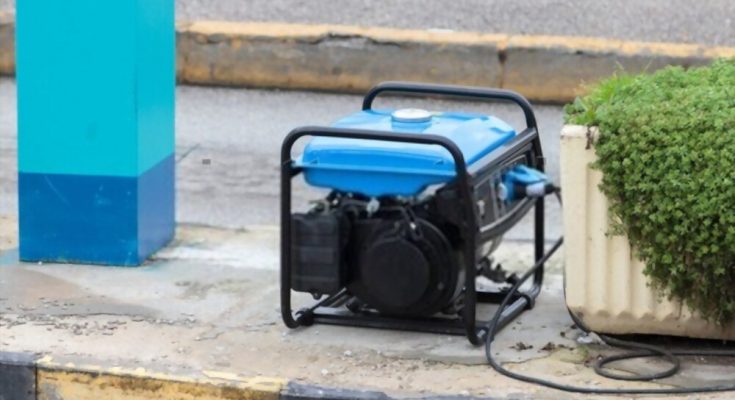What is a gas generator?
A wide variety of fuels are used to power generators. The most common ones are gasoline, natural gas, diesel, and propane. With such a wide array of options, the house owner’s choice of fuel and the right type of generator will depend upon factors such as the availability of fuel and the frequency of the use. So, what is a gas generator? Well, in simple terms as the name itself suggest, a gas generator is a generator that is powered by gas.
Gasoline generators
Gasoline generators are the most well-known type of generator. The fuel is quite easily available and is comparatively inexpensive. The power per weight unit in a gasoline-powered generator is also more than other types of generators.
Gasoline generators are less costly than generators that use other fuel sources. However, their price depends upon the components used. Multi-cylinder, water-cooled engines are qualitatively better and are priced high. These generators, unlike the cheaper ones with single-cylinder, air-cooled engines generate less noise and operate with a steady temperature.
Some generators come packed with features like low oil shut down, overhead valves, high-temperature shutdown, and electric starter. Engine speed and the type of alternators are used to determine the life of the generator.
There are certain disadvantages to using gasoline generators. It has a very short shelf life of approximately six months. Fuel stabilizers have to be added to keep the fuel from getting unusable. These are highly inflammable and storing gasoline for a long duration of time can be extremely dangerous.
These generators require frequent maintenance and there is the problem of condensation occurring in cold weather. Gasoline forms gum deposits especially during the cold weather and can cause problems in fuel filters and carburetors if the generator is not run often.
The generators are available in 3KW to 15KW and more. The minimum cost of home generators in the range of 3KW to 5 KW is approximately $500 to $1000.
Natural gas generators
Most of the standby or also known as permanent generators are powered by natural gas. It is the most convenient source of fuel and normally available at all times. Natural gas supplied through home gas lines can be conveniently piped to the generator eliminating the inconvenience of refueling and the risk of storing the fuel.
In areas where natural gas is available, using a natural gas-fuelled generator is a better choice. The generator lasts longer, requires less maintenance and burns cleaner. The engine produces less noise than diesel or gasoline-powered generators.
Propane gas generator
Propane gas is normally used for permanent standby generators or in places where there is an availability of fuel supply. For house owners who already have a storage tank of around 150 to 200 Gallons, propane generators are the best choice. These generators require less maintenance.
There is no problem starting them up or condensation in cold weather. Propane gas burns cleaner and has a longer shelf life. The disadvantage of propane is that it is relatively expensive and is less efficient, producing less energy per unit volume than diesel. A 10 KW to 12 KW generator is sufficient to power a normal-sized home. A 12KW propane or natural gas generator may costs $3200 upwards.
Frequently Asked Questions
A natural gas generator consists of an internal combustion engine that infuses a mixture of air and fuel into a combustion chamber, where there is a disk-like device that compresses the mix.
The fuel is ignited by a spark plug that turns the piston down and turns a crankshaft. In turn, the crankshaft, rotates the generator’s rotor in an electromagnetic field, generating an electric current that is able to power appliances, charge batteries, or even run high-wattage tools, depending upon the generator’s size.
The natural gas generator can cost anywhere around $1,900 – $5,000 depending upon the size of the generator and some factors.
You can check out the step-by-step guide on how to convert a gas generator to propane here.
You should use the regular unleaded gas of at least 85 octane for your gas-powered generator. Firstly switch off the generator engine and allow it to cool for about 2 minutes before refueling. Never put gas into your generator while the engine while it’s running
Gas-powered generators can cost anywhere around $500 to $4,000 depending upon the brand, quality, durability, and the features that the unit includes.
If you want to power just the minimal items like lights, fans, radio, etc, then anything from about a 1500 watt to a 2500 watt generator would do the work. But, if you are looking for a unit to power larger appliances and run the generator for a longer time, then you should choose the one with higher wattage depending upon your power needs.

